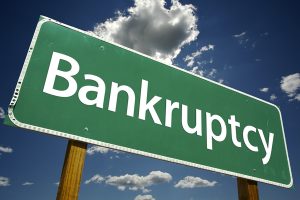Chapter 7 Bankruptcy: The Means Test

Chapter 7 bankruptcy is the most common type of bankruptcy for consumers and is designed to help average-income and low-income people who need help getting out of debt. More specifically, Chapter 7 bankruptcy is only available to bankruptcy filers who either do not have income or do not have income sufficient to repay their debts. In order to satisfy this requirement for Chapter 7 bankruptcy relief most debtors must pass the “means test”. Essentially, the means test looks at your monthly income and expenses and disqualifies you from filing for Chapter 7 bankruptcy if your figures do not fit within the test’s guidelines.
How Does The Means Test Work?
The means test was added to the Bankruptcy Code in 2005 and today is the biggest hurdle to qualifying for Chapter 7 bankruptcy relief. The Bankruptcy Code’s means test (11 U.S.C. § 707) only comes into play if the debtor’s current monthly income is more than their state’s median income for a household of the same size. In other words, if your monthly income is less than your state’s median income then you qualify and do not need to do any further calculations under the means test.
However, if your monthly income is more than your state’s median income for a household of your size, then the next step of the means test is to calculate your “monthly disposable income”. This is calculated by deducting certain expenses from your income. The idea is that if your monthly disposable income is high enough to allow you to pay off a portion of your unsecured debts then you should not be eligible to file for Chapter 7 bankruptcy. Determining which deductions you can take is often a complicated process that can be made much easier by employing the help of a bankruptcy lawyer.
What If I Don’t Pass The Means Test?
If your income is too high for you to utilize Chapter 7 bankruptcy to wipe out your debts, you may still be able to file for bankruptcy under Chapter 13. However, under Chapter 13 bankruptcy you will likely still be required to repay a portion of your debts. But before you file under Chapter 13, consider that you may qualify for an exemption from the means test. If this is the case then you can still file for Chapter 7 bankruptcy even if you fail the means test.
Exceptions To The Means Test Requirement
It is important to note that not everyone is required to pass the means test. For example, according to the Bankruptcy Code § 707(b)(2)(D), certain disabled veterans are exempt from the means test requirement altogether. In order to qualify for this exemption the debtor must be a disabled veteran, and the debt must have primarily occurred while he or she was on active duty or while performing a homeland defense activity. There are also other complicated exemptions that our bankruptcy lawyers would be more than happy to discuss with you.
How Can We Help?
If you are in the Chicago area and are considering filing for bankruptcy, it is imperative that you speak with an experienced local bankruptcy lawyer. The lawyers at the Bentz Holguin Law Firm, LLC can assist you today. Call us at 312-647-2116.


